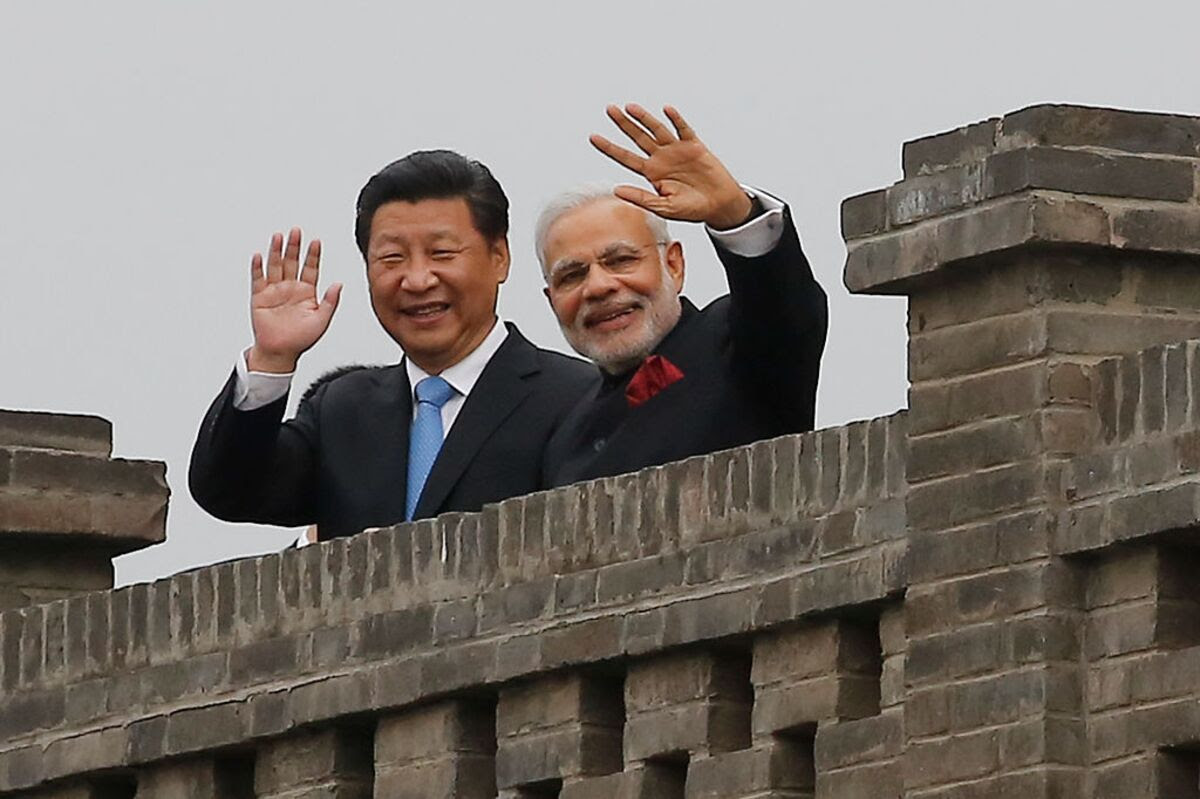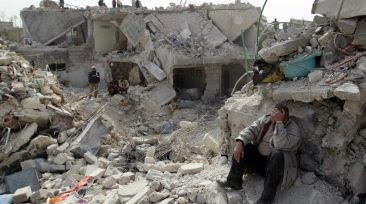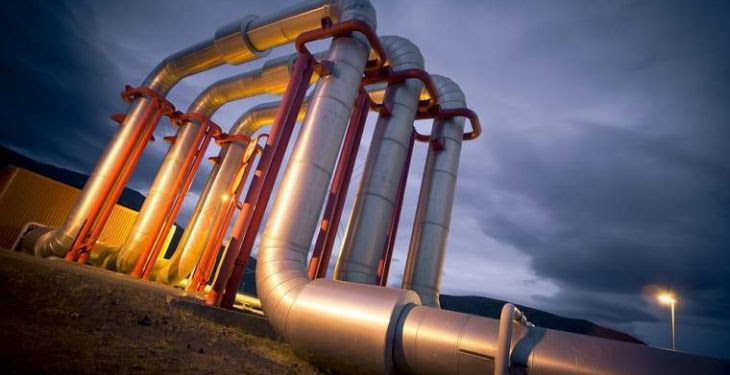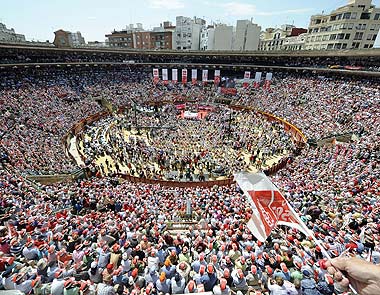The GEAB bulletin of February is available now! Enjoy.
Global statistical dislocation: the multiplication of tools for measuring economic reality.
Within the global systemic crisis that we are now experiencing, our experts have been talking for some years about “statistical fog” to qualify the inability of today’s tools to measure real economy, or even the way to manipulate them in order to match results to the political speech (or vice versa). Leaving aside the temptation to manipulate, this “statistical fog” also derives from the fact that the economy is evolving profoundly, and yesterday’s indicators (GDP, unemployment, etc.) are no longer relevant in today’s world. After a few vain attempts to transform these old time indicators, we are able to see new initiatives... (Read the FREE public announcement / GEAB 112)
Global statistical dislocation: the multiplication of tools for measuring economic reality.
Within the global systemic crisis that we are now experiencing, our experts have been talking for some years about “statistical fog” to qualify the inability of today’s tools to measure real economy, or even the way to manipulate them in order to match results to the political speech (or vice versa). Leaving aside the temptation to manipulate, this “statistical fog” also derives from the fact that the economy is evolving profoundly, and yesterday’s indicators (GDP, unemployment, etc.) are no longer relevant in today’s world. After a few vain attempts to transform these old time indicators, we are able to see new initiatives... (Read the FREE public announcement / GEAB 112)
A political anticipation calendar of future events: February-May 2017
February 15-16 / Astana: Next round of peace talks on Syria The peace in Syria initiative launched by Russia, Turkey and Iran in the wake of the December 29 ceasefire agreement continues. The capital of Kazakhstan, Astana, will be hosting a new meeting on February 15 and 16, to which the United States, the United Nations and Jordan are invited. The United Nations had scheduled a meeting on the same subject on February 8 in Geneva, which they decided to postpone until February 20 in order to take into account the outcome of the Astana meetings… (Subscribe to read more / GEAB 112)
February 15-16 / Astana: Next round of peace talks on Syria The peace in Syria initiative launched by Russia, Turkey and Iran in the wake of the December 29 ceasefire agreement continues. The capital of Kazakhstan, Astana, will be hosting a new meeting on February 15 and 16, to which the United States, the United Nations and Jordan are invited. The United Nations had scheduled a meeting on the same subject on February 8 in Geneva, which they decided to postpone until February 20 in order to take into account the outcome of the Astana meetings… (Subscribe to read more / GEAB 112)
These will be the 32 most powerful economies in the world by 2050
By 2050, the world is likely to have changed drastically from what we know now, and the planet’s economic and financial landscape will be no exception. A report from professional services giant PwC looks at which economies around the world will be the biggest and most powerful in 33 years time... (The Independent)
By 2050, the world is likely to have changed drastically from what we know now, and the planet’s economic and financial landscape will be no exception. A report from professional services giant PwC looks at which economies around the world will be the biggest and most powerful in 33 years time... (The Independent)
Germany: An Arrhythmia at the Heart of Europe
We anticipate that this European state will face several economic, cultural and political difficulties this year and next. First, the rise of the euro will hurt German exports; the stabilisation of oil prices prohibits the oxygen balloon effect of prices declines of 2015; failure of the migrant strategy puts Germany face to face with all the consequences of its weak demographics (in terms of domestic consumer market and potential for wage decline); there are centrifugal tendencies within the federation particularly with growing cultural and political divergences as in Bavaria… (Subscribe to read more / GEAB 112)
We anticipate that this European state will face several economic, cultural and political difficulties this year and next. First, the rise of the euro will hurt German exports; the stabilisation of oil prices prohibits the oxygen balloon effect of prices declines of 2015; failure of the migrant strategy puts Germany face to face with all the consequences of its weak demographics (in terms of domestic consumer market and potential for wage decline); there are centrifugal tendencies within the federation particularly with growing cultural and political divergences as in Bavaria… (Subscribe to read more / GEAB 112)
Italy’s former PM Renzi resigns as PD head as party split beckons
Former premier Matteo Renzi is to stand again for his Democratic Party (PD) leadership. Internal party feuding is threatening to split the party ahead of elections to be held by early 2018. Resisting pressure from a small group of party dissidents, Renzi resigned as head of the ruling Democratic Party (PD) during a special conference in Rome on Sunday... (Deutsche Welle)
Former premier Matteo Renzi is to stand again for his Democratic Party (PD) leadership. Internal party feuding is threatening to split the party ahead of elections to be held by early 2018. Resisting pressure from a small group of party dissidents, Renzi resigned as head of the ruling Democratic Party (PD) during a special conference in Rome on Sunday... (Deutsche Welle)
September 2017 – Euro crisis: The ECB loses its independence
The post-Brexit Europe does not need the extreme right-wings, it is already lining up with the national-European model proposed by the British. The antagonism between European and national levels, which has dramatically increased within the crisis, due to a lack of democratic anchoring at the European level, has led in just 6 months to a complete takeover of the European institutions by the Member States. The problem is that the failure of the community method results a “might makes right” systems… (Subscribe to read more / GEAB 112)
The post-Brexit Europe does not need the extreme right-wings, it is already lining up with the national-European model proposed by the British. The antagonism between European and national levels, which has dramatically increased within the crisis, due to a lack of democratic anchoring at the European level, has led in just 6 months to a complete takeover of the European institutions by the Member States. The problem is that the failure of the community method results a “might makes right” systems… (Subscribe to read more / GEAB 112)
Juncker attacks US on Nato spending
European Commission head Jean-Claude Juncker has said the US was wrong to push European members of Nato to spend more on their militaries. “It has been the American message for many, many years. I am very much against letting ourselves be pushed into this,” he said in a speech at the Munich Security Conference on Thursday (16 February), according to the Reuters news agency... (EUObserver)
European Commission head Jean-Claude Juncker has said the US was wrong to push European members of Nato to spend more on their militaries. “It has been the American message for many, many years. I am very much against letting ourselves be pushed into this,” he said in a speech at the Munich Security Conference on Thursday (16 February), according to the Reuters news agency... (EUObserver)
European Real Estate: Caution
Here and there we may read some optimistic analyses on the European property market, saying either that the “revival” is here, that the sector is in good health, and so on. As our readers might guess, we are less enthusiastic and suggest the utmost caution in this regard, although the outlook is not uniformly and entirely gloomy. The real estate market remains hard to analyse because of the actions of the various economic and political players. The perspectives are very uncertain this year, so the utmost caution is required. Yet... (Subscribe to read more / GEAB 112 )
Here and there we may read some optimistic analyses on the European property market, saying either that the “revival” is here, that the sector is in good health, and so on. As our readers might guess, we are less enthusiastic and suggest the utmost caution in this regard, although the outlook is not uniformly and entirely gloomy. The real estate market remains hard to analyse because of the actions of the various economic and political players. The perspectives are very uncertain this year, so the utmost caution is required. Yet... (Subscribe to read more / GEAB 112 )
Euro: keep believing in it!
The LEAP team now believes that the more we are told about the difficulties of the euro, the more we must hear “course change needed” rather than “end of the euro coming”. Euro exit threats are mostly brandished as part of the haggling and bargaining kind of negotiations currently taking place among all the actors concerned, each with radically divergent interests… (Subscribe to read more / GEAB 112)
The LEAP team now believes that the more we are told about the difficulties of the euro, the more we must hear “course change needed” rather than “end of the euro coming”. Euro exit threats are mostly brandished as part of the haggling and bargaining kind of negotiations currently taking place among all the actors concerned, each with radically divergent interests… (Subscribe to read more / GEAB 112)
Asia's Strongmen Aren't Strong Enough
Across Asia, the world has supposedly been witnessing the return of the strongman. Chinese President Xi Jinping has been grasping more and more control in his own hands since claiming power in 2012. Two years later, Prime Minister Narendra Modi in India and President Joko Widodo (known as “Jokowi”) in Indonesia won office by selling themselves as forceful economic and political reformers. All three were heralded as the firm hands these giant developing nations needed to rejuvenate their promising but troubled economies. (Bloomberg)
Across Asia, the world has supposedly been witnessing the return of the strongman. Chinese President Xi Jinping has been grasping more and more control in his own hands since claiming power in 2012. Two years later, Prime Minister Narendra Modi in India and President Joko Widodo (known as “Jokowi”) in Indonesia won office by selling themselves as forceful economic and political reformers. All three were heralded as the firm hands these giant developing nations needed to rejuvenate their promising but troubled economies. (Bloomberg)
For first time, Coalition now killing more civilians than Russia
New Airwars research shows that for the first time since Moscow intervened in Syria’s civil war in September 2015, airstrikes by the US-led Coalition are now claiming the lives of more civilians than Russia’s brutal aerial campaign To date, Airwars researchers have identified 95 separate reported civilian casualty events in January across Iraq and Syria allegedly involving the Coalition. For the same period, 57 alleged Russian incidents took place... (Airwars)
New Airwars research shows that for the first time since Moscow intervened in Syria’s civil war in September 2015, airstrikes by the US-led Coalition are now claiming the lives of more civilians than Russia’s brutal aerial campaign To date, Airwars researchers have identified 95 separate reported civilian casualty events in January across Iraq and Syria allegedly involving the Coalition. For the same period, 57 alleged Russian incidents took place... (Airwars)
Europe Needs a Higher Price on Carbon
Europe’s promise to lower greenhouse-gas emissions looked bright a dozen years ago, when its leaders created the first big market for trading carbon permits. Sadly, though, its system has failed to encourage investment in clean technology and appreciably lower carbon dioxide emissions. Until the European Union trims the number of permits traded enough to drastically raise the cost of emitting carbon dioxide, its market will remain dysfunctional... (Bloomberg)
Europe’s promise to lower greenhouse-gas emissions looked bright a dozen years ago, when its leaders created the first big market for trading carbon permits. Sadly, though, its system has failed to encourage investment in clean technology and appreciably lower carbon dioxide emissions. Until the European Union trims the number of permits traded enough to drastically raise the cost of emitting carbon dioxide, its market will remain dysfunctional... (Bloomberg)
Gas: the real challenge
The oil crisis hides the gas emergence and subsequent trench warfare among the major producers. Around Europe: the United States and the unconventional shale gas, transported by sea and as liquid gas; Russia, Algeria and Norway, and the conventional gas (indexed to oil prices for the time being, under long-term contracts) delivered by land… (Subscribe to read more / GEAB 112)
The oil crisis hides the gas emergence and subsequent trench warfare among the major producers. Around Europe: the United States and the unconventional shale gas, transported by sea and as liquid gas; Russia, Algeria and Norway, and the conventional gas (indexed to oil prices for the time being, under long-term contracts) delivered by land… (Subscribe to read more / GEAB 112)
Referendum to create ‘Republic of Artsakh’ on Europe’s fringe
Some 100,000 ethnic Armenians are voting on a new name for their territory and new powers for their leader on Monday (20 February) in the crosshairs of Azerbaijan’s artillery and missiles. The referendum, in what used to be called the Republic of Nagorno-Karabakh, but what is likely to be called the Republic of Artsakh after the vote, comes in reaction to Azerbaijan’s military assault last April, which claimed between 50 and 350 lives on both sides... (EUObserver)
Some 100,000 ethnic Armenians are voting on a new name for their territory and new powers for their leader on Monday (20 February) in the crosshairs of Azerbaijan’s artillery and missiles. The referendum, in what used to be called the Republic of Nagorno-Karabakh, but what is likely to be called the Republic of Artsakh after the vote, comes in reaction to Azerbaijan’s military assault last April, which claimed between 50 and 350 lives on both sides... (EUObserver)

























No hay comentarios:
Publicar un comentario
Se permiten solo aquellos comentarios que no sean ofensivos en su forma o su contenido, debiendo ser expresados en cualquier caso, con respeto a las personas e instituciones.